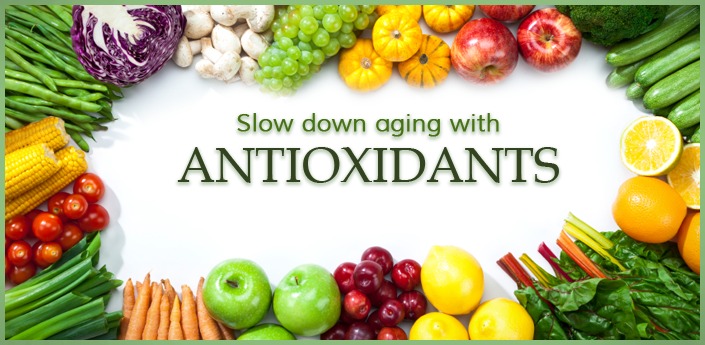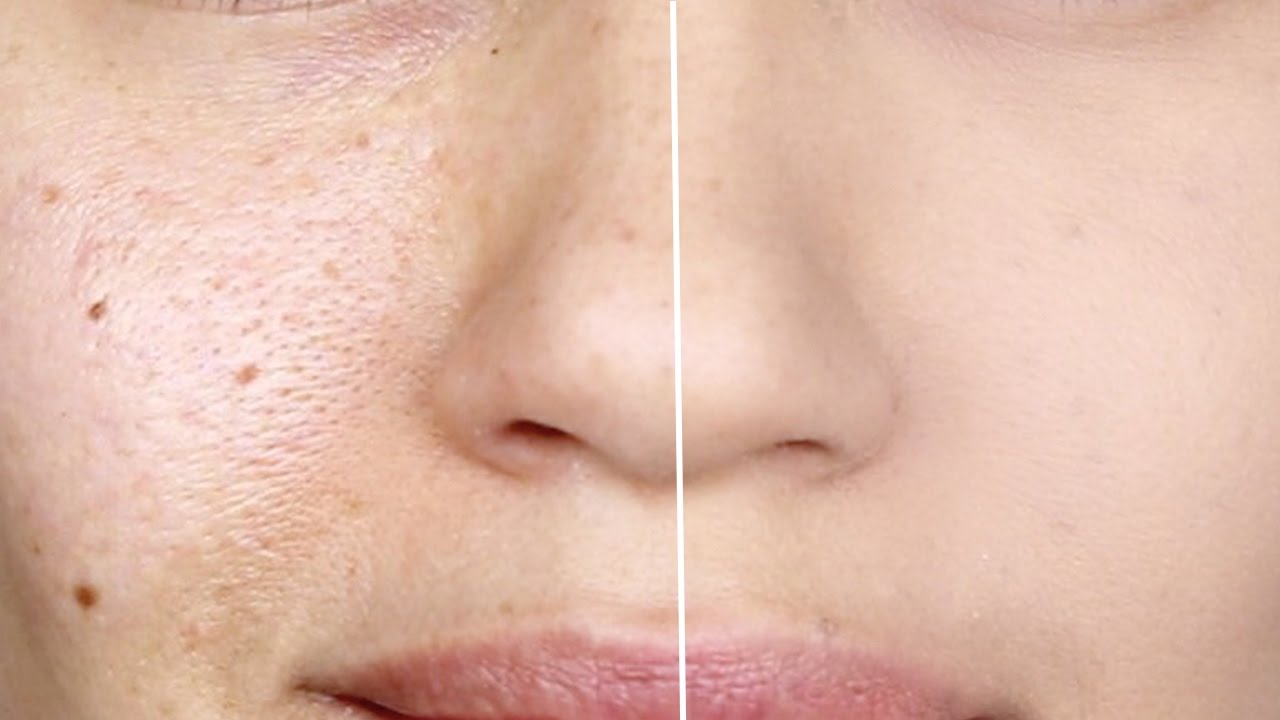Antioxidant
You may have tried to know and eat foods that are good for your heart or your stomach. But have you ever thought of eating foods that would shield your cells? Those would be the foods packed with antioxidants, a term that you may have heard before.
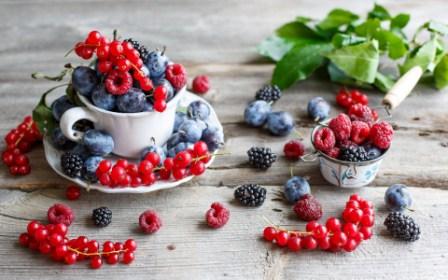
What are Antioxidants?
“Antioxidants are compounds found in food that stop or delay damage to the cells,” Lauri Wright, Ph.D., R.D., L.D., assistant professor of nutrition at the University of South Florida, tells SELF. They are naturally found in many foods, especially plants. They help ward off cell damage by “cleaning up” or removing waste products in our cells, called free radicals before they can do harm. “Antioxidants are released from the foods we eat through digestion and travel through the bloodstream and into cells,” where they do work on free radicals, Wright explains.
Antioxidants are substances that work interactively inside and outside of the body’s cells, protecting cell membranes from the damaging effects of highly reactive molecules called free radicals.
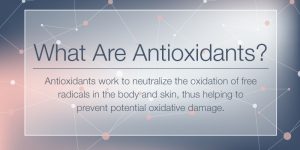
What are Free Radicals?
Free radicals are “charged” molecules that, if not counteracted by an antioxidant, run riot throughout the body, causing irreparable damage to cell membranes and cell structures (including our DNA or genetic blueprint), driving diseases such as cancer and heart disease, and also accelerating aging. In fact, free radicals are implicated in over 60 diseases.
Antioxidants are naturally found in foods produced from plants, such as fruits, vegetables, tea, coffee, chocolates, and wines.
Though there are a relentless number of antioxidants present under the sun, the most commonly heard ones include flavonols present in chocolates, lycopene in tomatoes, resveratrol in wine, beta-carotene in carrots and catechins in green tea.
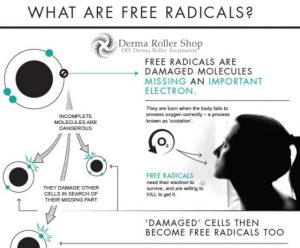
What do Antioxidants Do?
Antioxidants stop the process of oxidization, preventing the formation of free radicals before they are ever created. They can also stop free radicals from stealing the electrons from new cells, as the antioxidant compounds contain electrons that they can “donate” to complete the cellular structure of the free radicals.
They can even help to repair any cellular damage that was done by the free radicals since they were formed. They are essentially your body’s first line of defense, keeping free radicals under control, counteracting their damaging effects and removing them from your bloodstream.
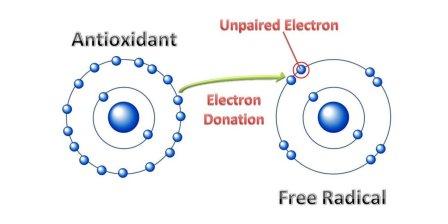
Health Benefits of Antioxidants
Antioxidants prevent a chain of destructive chemical reactions in the body and provide many benefits to overall health in general.
Dietary antioxidant vitamins include vitamins A, C, and E, as well as beta-carotene, lutein, lycopene, and selenium. Food Diets rich in antioxidants have been associated with better:
- Immune function
- Cardiovascular health
- Brain function
- Digestive function
- Blood sugar stability
- Prostate health
- Skin health
- Eye health
- Antioxidants help prevent Cancer ~ There is a deep connection between antioxidants and cancer as revealed by various researchers and you can keep this ailment at bay by consuming pumpkin, kiwis, red peppers and coffee to your heart’s content. While coffee is not really the richest source of antioxidants, it is definitely one of the most popular sources of antioxidants.
- It is thought that different antioxidants benefit the body in different ways. For example, beta-carotene has been shown to have health benefits for the skin and has also been linked to good eye health.
- Lycopene is considered to be beneficial for prostate health, including helping to reduce the symptoms of BPH, and vitamin C is a superhero when it comes to your health, boosting your immune system and protecting your heart.
- Getting more of these antioxidants is the key to being healthy! You’ll find that these antioxidants will go a long way towards keeping your body working well as you age.
- Plus, all of the antioxidant-rich foods are also loaded with other important nutrients, ensuring a proper nutritional balance in your life.
- When it comes to foods like apples or grapes, don’t even think of peeling out the skin in order to make the most out of your diet. Herbs and spices can be the missing link between antioxidants and aging as they come in a dried form which results in the concentration of antioxidants in these condiments. So the next time you sprinkle on some oregano to your asparagus soup, the better would really up.
Foods Rich in Antioxidants ~ Best Sources of Antioxidants
Antioxidants benefit your body and health in many ways. Let’s see different ways to increase your intake of antioxidants. One of the best ways to do this is to incorporate more antioxidant-rich foods into the diet.
Vitamin A
Foods rich in Vitamin A
- Carrots
- Sweet Potato
- Butternut Squash
- Mango
- Dark Leafy Vegetables like Spinach & Kale
Vitamin C
Vit C is found in most fruits and vegetables but it is highest
- Strawberries
- Oranges
- Papaya
- Pineapple
- Blueberries
- Tomatoes
- Peppers
- Kale
- Cauliflower
- Brocolli
- Brussels and Sprouts
Vitamin E
Vit E can be found in nuts and seeds such as
- Almonds
- Hazelnuts
- Pumpkin Seeds
- Sunflower Seeds
- Sesame Seeds
- Spinach & Kale
- Avocado
- Swiss Chard
Beta-carotene
Beta-carotene is one of a group of red, orange, and yellow pigments called carotenoids. Beta-carotene and other carotenoids provide approximately 50% of the vitamin A. It is a provitamin that the body converts into vitamin A. Foods rich in this nutrient are a colorful bunch:
- Carrots
- Peppers
- Sweet Potato
- Pumpkin
- Beetroot
- Papayas
- Apricots
- Goji Berries
- Kale
Lutein
It is found in green leafy vegetables such as
- Spinach
- Kale
- Collard
- Brocolli
- Courgette
- Brussels Sprouts
- Romaine Lettuce
Lycopene
It is an antioxidant primarily found in tomatoes and other foods of similar pigmentation and color such as watermelon, papayas, grapefruit, mango and red cabbage
Selenium
Foods rich in selenium include
- Brazil Nuts
- Chia Seeds
- Brown Rice
- Sunflower Seeds
- Sesame Seeds
- Flax Seeds
- Whole Wheat Bread
- Mushrooms & Whole Grains
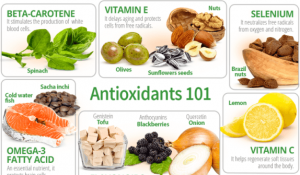
But the verdict is that if you start taking too much of antioxidant vitamins or various types of antioxidants supplements, you actually harm your body’s innate ability to activate the natural antioxidants defense system.
Thankfully enough, it is really hard to have too much of antioxidants from your daily diet which is the reason why experts always suggest to depend on the natural sources, preferably, coffee antioxidants, green tea antioxidants, and antioxidant fruits.
When you are doubtful about what to eat to get the maximum amount of antioxidants, try to create a mélange of differently colored fruits and vegetables and rest assured that you are getting enough antioxidants to fend off all the ailments that would have otherwise taken a toll on your health.

I’m Rhea, a fitness enthusiast, and a food lover. I am a housemaker, foodie, writer from NYC. I am a passionate writer and I love exploring places. Since I love cooking and working out, I am sharing my organic food recipes, fitness and beauty tips with the world. Trying to touch lives with some useful information.

